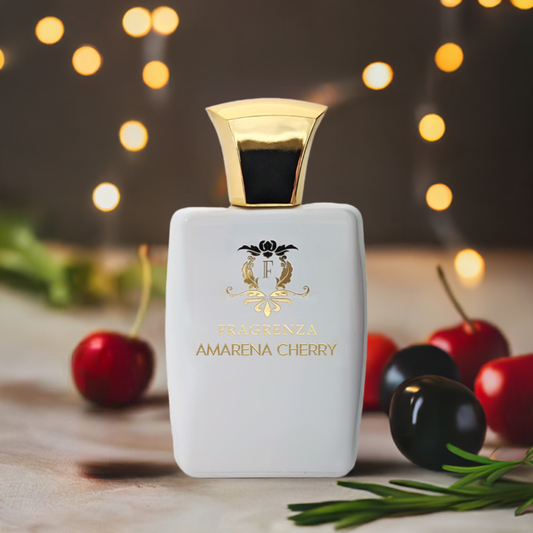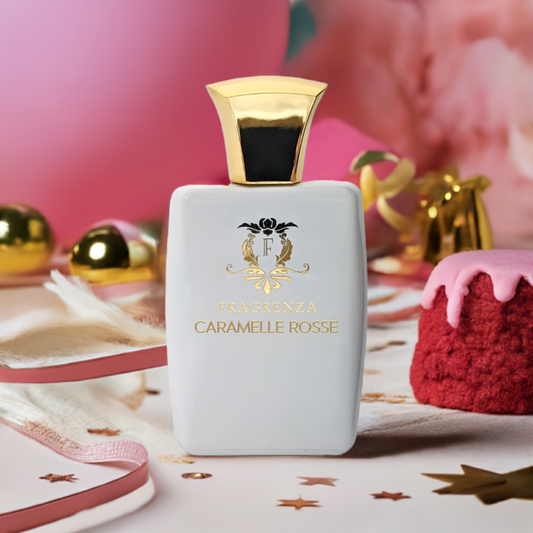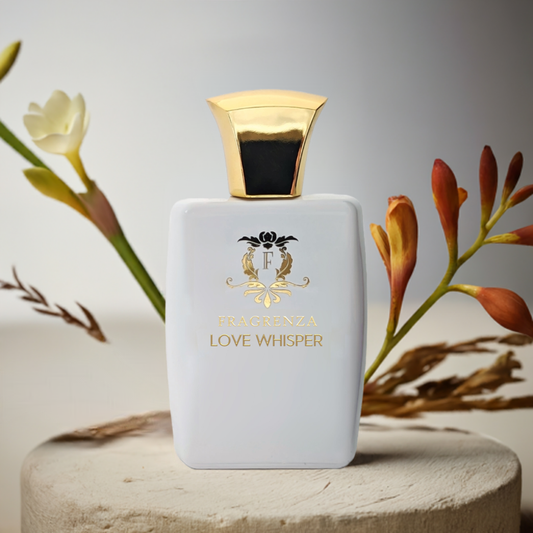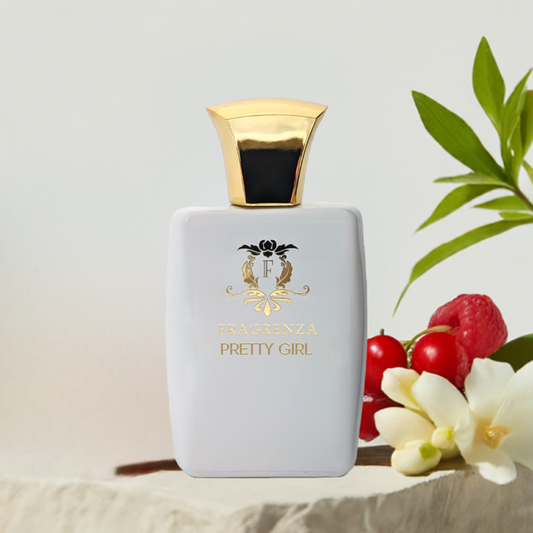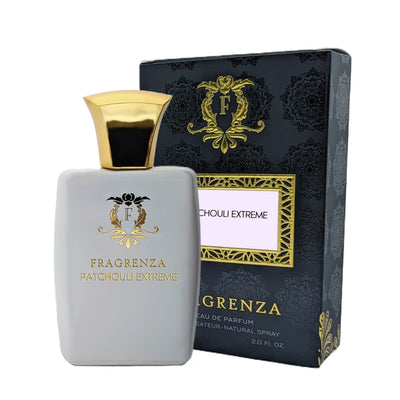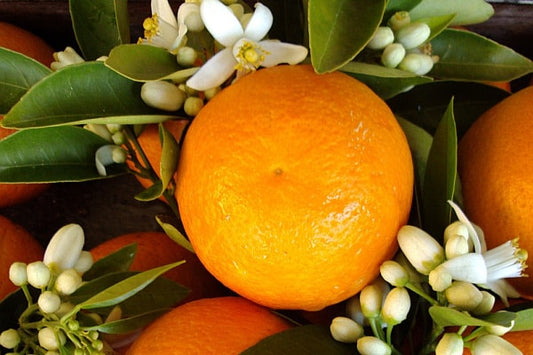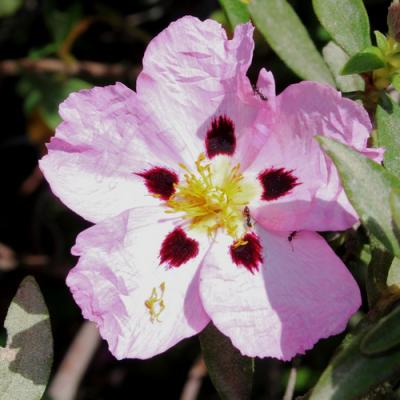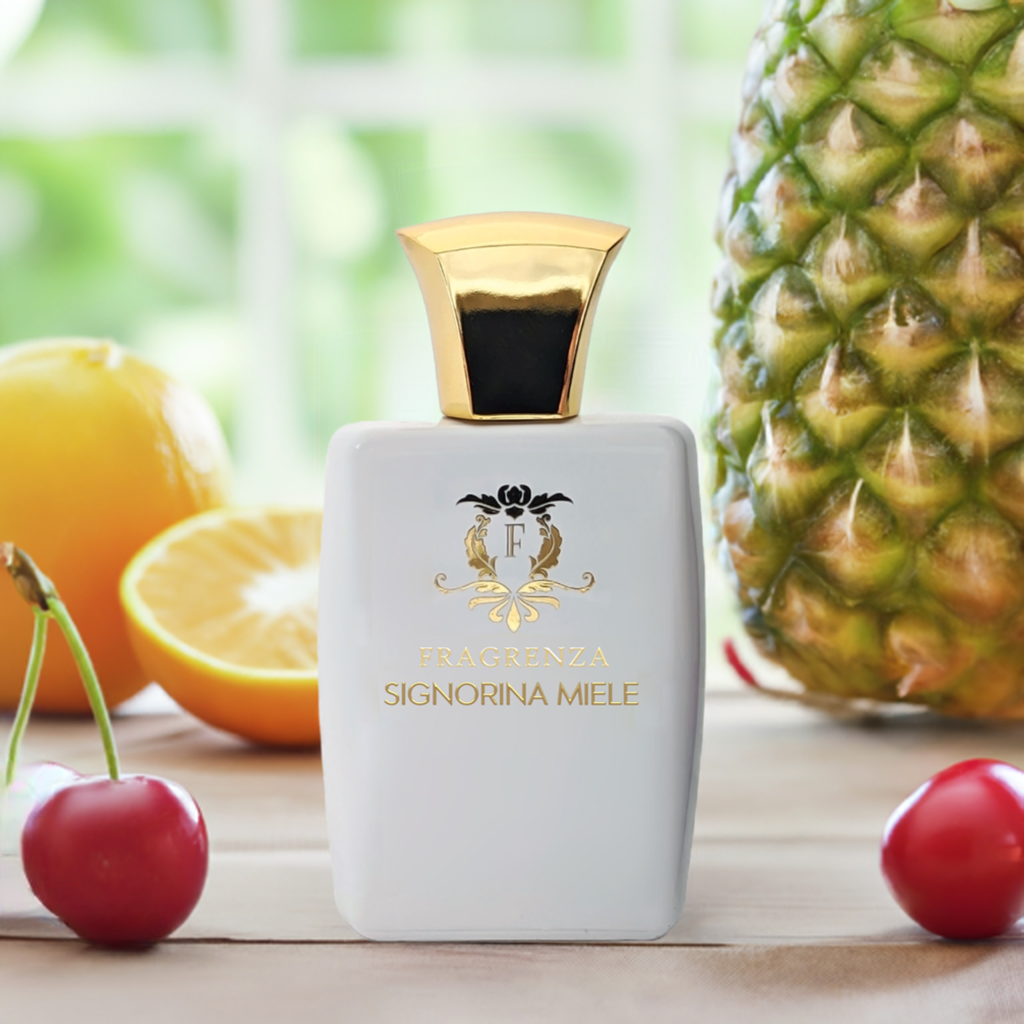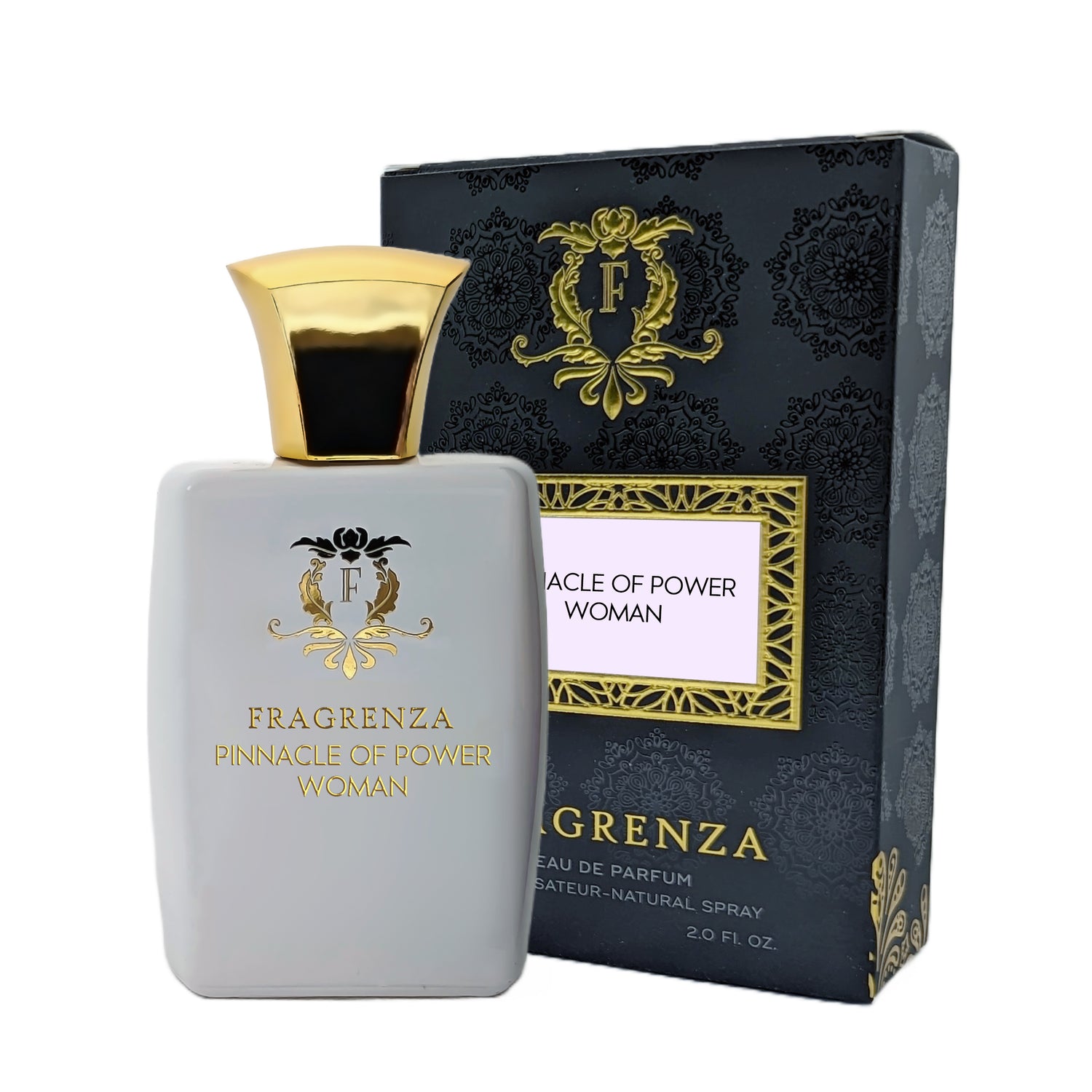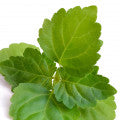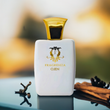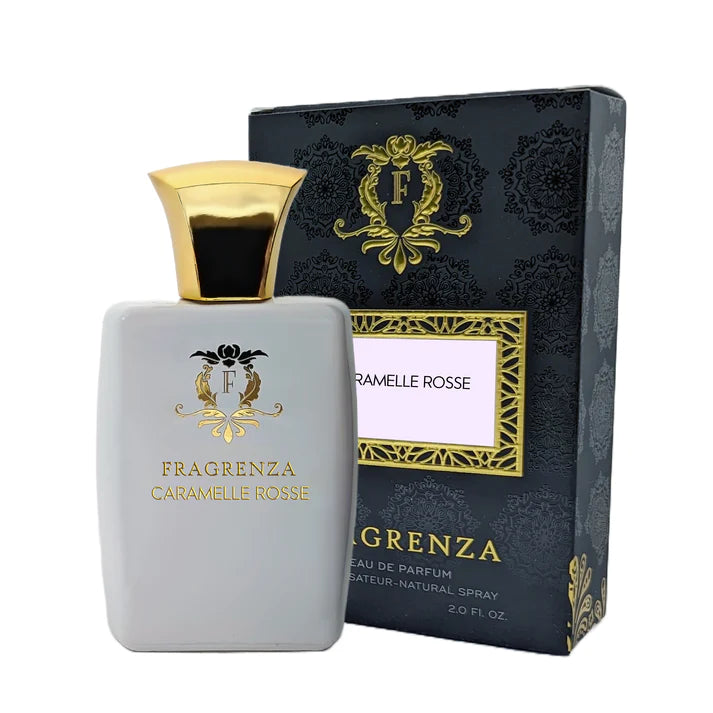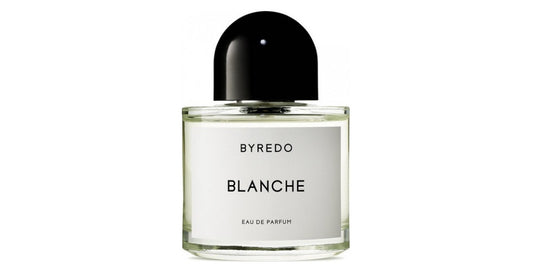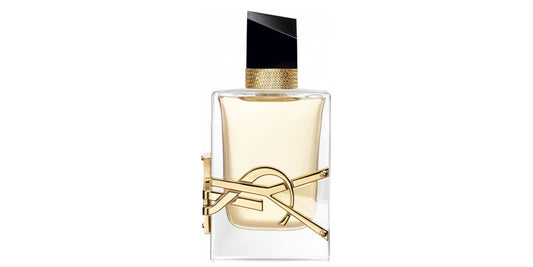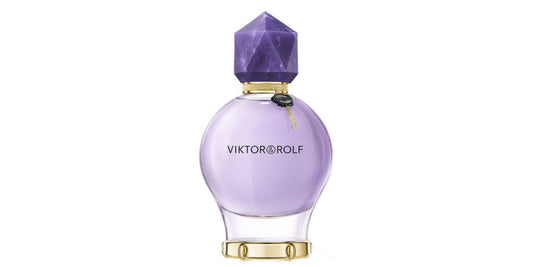What Does Patchouli Smell Like?
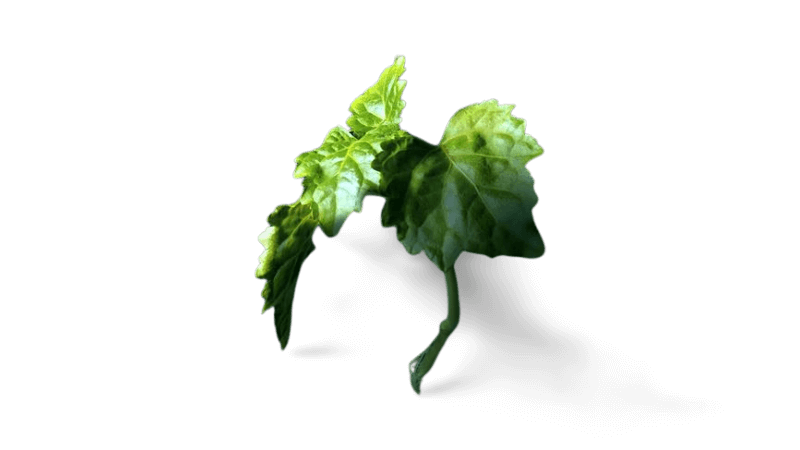
In This Article
Patchouli is a complex and versatile fragrance that is often described as earthy, woody, musky, and slightly sweet. It's characterized as having an olfactory profile that's sometimes associated with the smell of a dark basement and wet soil.
If you are unfamiliar with the patchouli scent or are curious about the history of its potent aroma, you have come to the right place. In this post, we will describe what patchouli smells like and its origin.
What is patchouli?
Patchouli is a fragrant flowering plant in the mint family. However, patchouli doesn't smell cool and fresh like most mints you buy at the store.
Patchouli is a tropical plant grown in Indonesia, the Philippines, and Malaysia. It is now extensively cultivated in those areas as well as the Caribbean, India, and China. Its aromatic leaves arrived in the Middle East through silk trade routes, wrapped in trunks of silks, carpets, and other valuable items to keep moths and other insects at bay.
The patchouli plant has long stems that can reach three feet in height. However, don't look for a smell inside because drying the leaves and then treating them will create a wonderful patchouli smell.
After distillation, the obtained patchouli extract will give off the earthy and moist aroma of its Asian roots, as well as the fresh air of camphor.
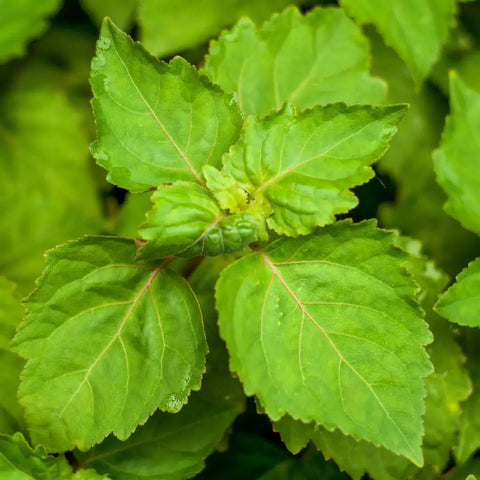
How would you describe the smell of patchouli?
For some, patchouli smell gives off the delicious aromas of wine corks. For others, patchouli smells like a ripe apple!
Patchouli has been used for a long time as a raw material in perfumery for its excellent stabilizing and binding properties. The smell became popular when Coty introduced Chypre fragrances in 1917. It is so adaptable that it may be found in fragrances, candles, diffusers, and other products.
The main ingredients in Chypres from the 20th century were bergamot, jasmine, oakmoss, rose, labdanum, and patchouli as a base note!
Even when we didn't know how to distill and it smelled like moldy mushrooms, we never went without it.
Patchouli smell description: It has a seductive, intrusive, intoxicating, and provocative aroma.
The smell of patchouli is a complex blend of different notes, including:
- Earthy: The earthiness of patchouli can be equated to the aroma of a damp forest floor—a mix of decaying wood, soil, and moist greenery. This intense earthiness is a significant part of the patchouli smell profile
- Woody: Wood notes, such as cedar or sandalwood, share a lot in common with patchouli. They have similar base notes, providing a solid, substantial foundation to a fragrance. The woodsy note in patchouli is like freshly cut timber or a walk through an ancient, moss-covered forest.
- Sweet: Amidst the earthy musk, a hint of sweetness finds its way through. This isn't the light, airy sweetness you might find in a fruity fragrance. Instead, it's a deep, rich, almost resinous sweetness. It's more comparable to the dark, aromatic sweetness you'd find in raw honey or aged bourbon.
- Musky: This attribute is typically associated with animalistic, sensual undertones. Patchouli carries this musky smell, which is very grounding and deeply embedded in the overall aroma profile. It is woody, warm, and slightly intoxicating. This muskiness contributes to patchouli's reputation as a somewhat polarizing smell—you either love it or you don't.
- Herbaceous: There are green, leafy undertones to patchouli, reminding you of fresh herbs. This herbaceous note adds an element of freshness to the otherwise heavy smell profile.
- Spicy: The smell of patchouli carries an intriguing spicy edge. This isn't the sharp, overt spiciness of a fragrance like cinnamon or clove, but more of a subtle, warm, peppery background note.
- Slightly medicinal: While not overtly so, there is a minor medicinal note in patchouli that is often described as camphor-like. This adds a cool, slightly minty edge to the smell, which contrasts beautifully with its otherwise warm, rich profile.
This complex blend of scents is what makes patchouli so distinctive. It's a versatile aroma, finding its place in perfumery, aromatherapy, and various natural remedies. Yet, because of its distinctiveness and intensity, it's also a smell that tends to evoke strong reactions—people often either love it passionately or dislike it intensely.

How is patchouli used in perfumes?
The first fragrance to put patchouli smell in the spotlight was the famous Angel by Thierry Mugler in 1993. The innovative perfume that smells like patchouli of the house of Mugler alone contains 30% pure patchouli essence!
No one could, therefore, ignore the smell! Patchouli note will appear thereafter in many great perfumes for women, of course, but also men. It's still a love-it-or-hate-it element for many people today, provoking lots of bias.
But we enjoy patchouli perfumes, and we believe that even if you're not a fan of patchouli smell, if you sample any of these perfumes that have patchouli, you'll acquire a fondness for the aroma.
What are the olfactory qualities of patchouli?
Sandalwood, patchouli, and rosewood are powerful fragrances that are typically linked with masculinity. The earthy patchouli perfume may warm the body and boost emotions of well-being, heightening a woman's desire for a sexual relationship.
A few years later, we found Patchouli in new chords that were much less heady than the essences used before. We discovered by the same that Patchouli goes divinely well with many different chords.
Patchouli smell is particularly suited to oriental, woody, or even leathery notes.

Patchouli is a familiar note in male fragrances, such as Patchouli Intense Nicolai, Ralph Lauren's Polo Black, and Daniel Hechter's Midnight, where citron and sandalwood are prominently included.
Why do hippies like patchouli oil?
Urban legend says that pot-smoking hippies like patchouli odor because the perfume can hide the odor of marijuana. Patchouli aroma reminds many of us of the peace and love of the 1970s.
Many hippies who wanted to have an exotic aroma chose this scent because of its roots in plants and Asia. So much so that when it's used a lot, even people who like this light but strong scent get tired of it.
Therapeutic benefits of patchouli
Patchouli scent is a popular aromatherapy ingredient for good reason. According to one study, patchouli dramatically reduced stress and increased compassion levels when breathed by emergency department nurses.
The smell of patchouli is very strongly connected with love and passion. Patchouli smell has been used for hundreds of years as an aphrodisiac, stimulating estrogen and testosterone to provide a libido boost for both sexes.
Patchouli might serve as a replacement or supplement to our pheromone production.
These are the pheromones that we feverishly wipe away with harsh cleansers and deodorants every day. One might think that Patchouli is exclusively reserved for masculine fragrances. While its undeniable advantage lies in that its power and its scent exhaled on a woman's skin as on a man's skin.
Patchouli aroma may soothe your emotions, raise your mood, and ease anxiety.
Some describe patchouli's odor as a grounding and emotionally balanced aroma that aids in the relaxation of both the mind and the body.
Patchouli aroma increases the production of feel-good chemicals such as dopamine and serotonin, which help to combat anxiety, stress, and depression.
- Antiseptic:
- Patchouli has powerful antibacterial properties, which means it has cleansing power and may help eliminate dirt and grime from the skin, according to experts.
- Anti-inflammatory:
- Patchouli is an excellent acne treatment component since it is non-comedogenic and will not leave the skin feeling oily while thoroughly cleansing it of impurities. It may also help with skin disorders like eczema, dermatitis, acne, and dry skin.
- Astringent:
- Patchouli has strong antibacterial properties, which means it destroys microorganisms. On the bright side, it will not peel the skin while killing the harmful things.
Here are some additional details about the scent of patchouli:
- The earthy notes in patchouli are reminiscent of wet soil, wood, and moss.
- The woody notes in patchouli are similar to sandalwood, cedarwood, and vetiver.
- The sweet notes in patchouli are similar to vanilla, amber, and tonka bean.
- The musky notes in patchouli are similar to musk, ambergris, and civet.
Here are some of the benefits of using patchouli:
- Patchouli can help to reduce stress and anxiety.
- Patchouli can help to improve sleep quality.
- Patchouli can help to boost the immune system.
- Patchouli can help to protect the skin from damage.
- Patchouli can help to improve hair health.
Here are some ways to use patchouli:
- Add a few drops of patchouli essential oil to a diffuser or carrier oil and use it for aromatherapy.
- Add a few drops of patchouli essential oil to your bathwater.
- Apply patchouli essential oil to your skin as a perfume or lotion.
- Add patchouli essential oil to your favorite candles or incense.
Patchouli is truly intoxicating when done correctly;if you weren't a fan previously, we urge you to give it another chance.


